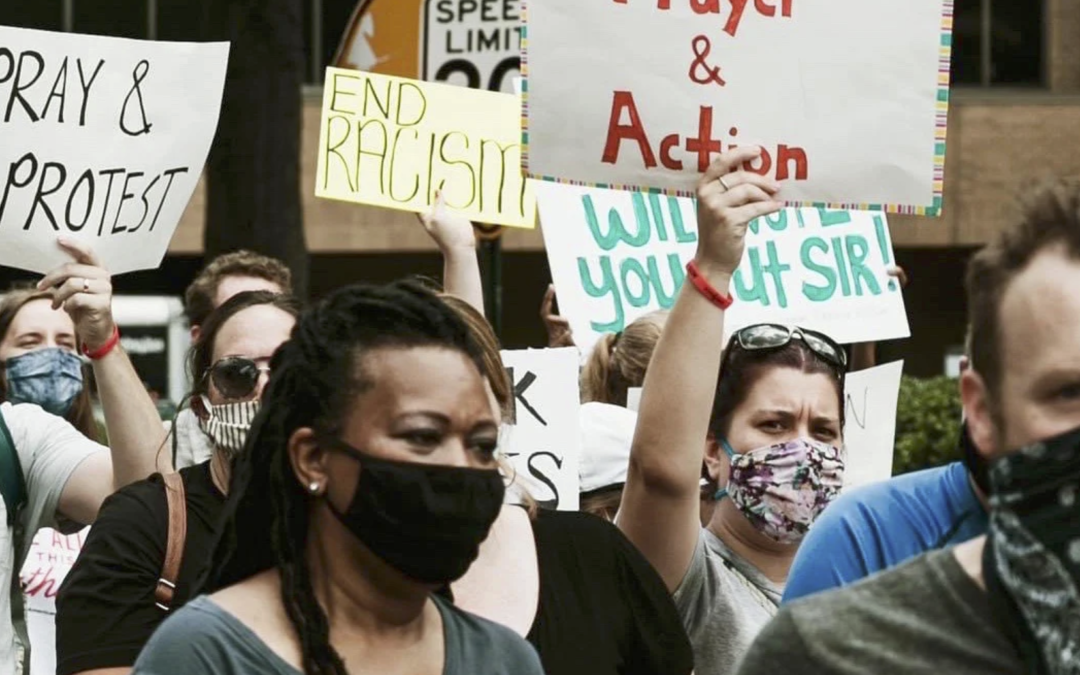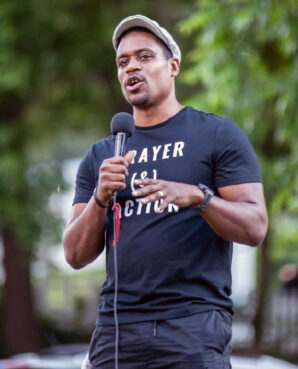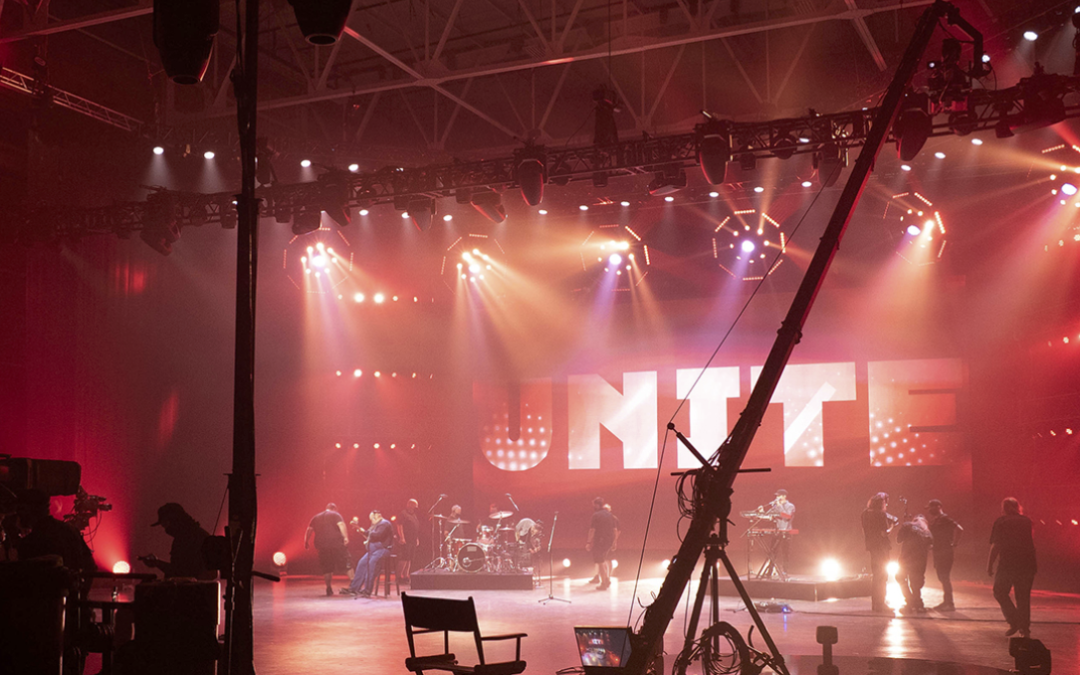
Kirk Franklin: On supporting COVID aid, fighting racial injustice, boycotting TBN
Courtesy of SWAY’S UNIVERSE
Grammy-winning gospel performer Kirk Franklin can’t be onstage these days but he’s featured virtually in an upcoming benefit to draw attention to poor children across the globe who are affected by COVID-19.
Franklin is joining World Vision, Food for the Hungry and Compassion International in the “Unite to Fight Poverty” virtual concert set to be televised and streamed online on Friday (Aug. 28) at 8:30 p.m. EDT on Daystar Television Network, Facebook, YouTube and PureFlix. It is also scheduled to air at 3 p.m. EDT Saturday on Fox Business.
Franklin, who won six Stellar Gospel Music Award trophies on Sunday, joins 20 other Christian artists for the two-hour fundraiser to aid the three Christian humanitarian organizations. Those groups are working to help families experiencing extreme poverty in the wake of the pandemic and natural disasters by providing hygiene supplies and clean water.
Franklin, who has traveled across the world, also recorded a new video of his song “Strong God” for Compassion to raise awareness about the crisis. Even as he’s drawing attention to the pandemic, he acknowledged it’s hard for him to not know when he’ll be able to perform in person again.
“I miss people,” said the host of the “Sunday Best” televised singing competition. “And I’m looking forward to getting back in front of people.”
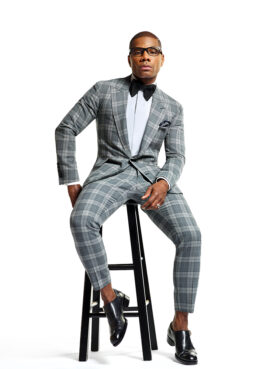
Musician Kirk Franklin in 2019. Courtesy photo
Franklin, 50, talked to Religion News Service about the global effects of the coronavirus and his calls for the church to respond to racial inequities, but he declined to comment on whether his related boycott of Trinity Broadcasting Network and the Dove Awards continues.
The interview has been edited for length and clarity.
First of all, congratulations for being on Billboard’s Gospel Songwriters’ chart for 50 weeks. Is that a milestone you expected to reach?
Oh, no, no, not at all. Not at all. Not at all. And I’m really appreciative and grateful for everything I get. ’Cause I know nothing is owed to me.
This is the first time that World Vision, Compassion International and Food for the Hungry have worked together on an effort like this benefit. Why did you decide to join this joint effort?
It’s because I believe in the ideals of what they stand for. And I know that even though there are many disparities and deficiencies in America, we are still a blessed country. I’ve been blessed to travel the globe and I can totally understand how, even in the middle of this global pandemic, there are many countries and many individuals that are not able to just pivot and to diversify to survive. I can totally see why this would be such a great moment to come together because we’ve never seen anything like this in our lifetime. And it makes me so proud of them to see them unify for the same cause.
What song or songs did you perform and why did you choose those selections?
Well, my song selection was not really based on the mood or the cause of the event. I just wanted to do music I thought would make people feel good. I performed “Love Theory” and “Just for Me.” I’ve been blessed by God’s guidance to have a whole bunch of songs and at this stage of my career, whatever I pick is going to be something that just feels good. But sometimes it’s hard to pick. And so you just deal with what you’re feeling at the moment.
You went to the Dominican Republic with Compassion International. How recently did you go and how long were you there?
Believe it or not, it was right before the world shut down. It was in January. And I was there almost a week.
What is it that struck you particularly about the trip?
How many people in the world still live marginalized lives, that still live under the poverty line, and how many people are forgotten by the 1%. That is just a mystery to me. And it can make me even, at times, question God’s bigger divine plan, even though I have to choose to believe, when it’s hard to believe. But that is something that has always fascinated me.
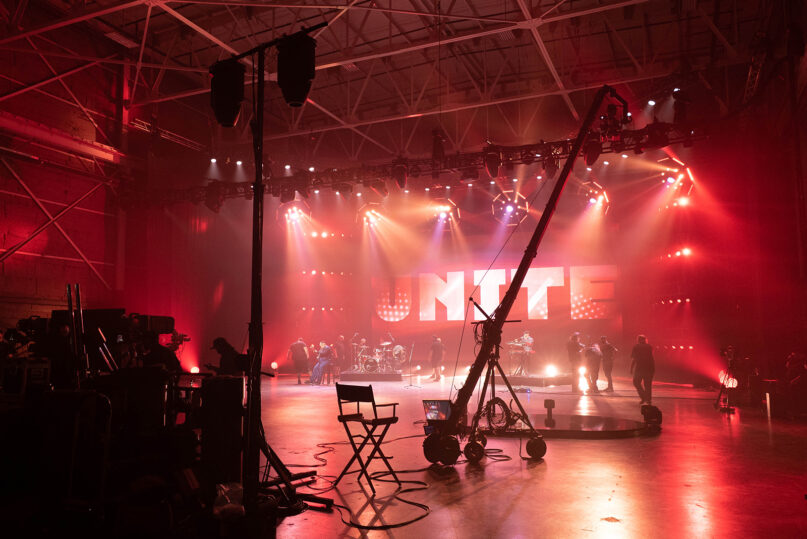
A recording set for the “Unite to Fight Poverty” virtual concert. Courtesy photo
How has COVID-19 affected you personally?
We’ve had people we know, family members have died, people in the churches we’ve been members of have died or people have been hospitalized. So we’ve seen it firsthand, we’ve seen it up close. And then also I’m in the people business. And so many artists and churches and ministers and pastors, we’re in the job of touching people and there’s something very healing and therapeutic for the soul when we do. And we have not had the opportunity to do that for almost six months.
Has the death of George Floyd and other people, Black people in particular, in police-related incidents affected you personally?
Yes, yes, of course. I’ve been very outspoken. I’ve been very engaged. I’ve been very consistent in my conversations about the disparity of how these actions are in the legal system, in the systems there to protect people, but they don’t protect all people. And also been very vocal about the lack of the church’s voice in social issues that affect people that go to these churches, that sit in these pews. And the lack of information or the lack of conversation has been really deafening.
You appeared in March on Trinity Broadcasting Network, and you discussed these very issues you just spoke of. Has anything new come of that time with TBN or any new steps since then?
I can just say that my heart and my passion won’t stop in any conversation I have that has to do with social injustice or the injustices of any group of people the Bible calls Christians to be engaged in. And, until we are more visible, more visual, more outspoken and more committed to these causes, I will continue to have conversations.
So did that appearance in some way mark an end of your boycott of TBN and the Dove Awards, or is that continuing?
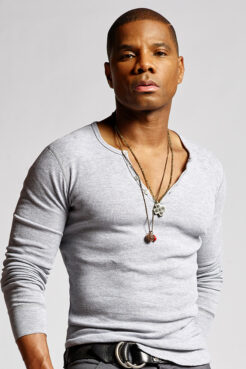
Musician Kirk Franklin in 2019. Courtesy photo
I will just say I will continue to have conversations until the conversations are not needed.
I’m just going to ask one more time: In October, do you expect to be on the Dove Awards?
In October, I continue to keep the narrative of God’s heart and social injustice, and the church’s lack of engagement. We should be the ones leading the narrative and until we do, I will continue to speak up and speak loud and humble and with love until there’s tangible change.
But it sounds like you’re not ready to answer the question about whether you’re going to be there or not.
I will be where I’m supposed to be with this message. I will be at whatever platform I’m called to be able to talk about how God’s love should include everybody. And, until that happens, I will continue to preach love, truth, justice and grace.
Since you are an artist of faith who performs about faith, how do you have faith as you go through this time of the coronavirus pandemic and not being able to perform the way you’d like?
I started going back to therapy and that’s been very, very good for me. I’m a Black man that goes to therapy. I talk, I pray, and they are synonymous. It has been really, really good to be able to have somebody to be able to help you as you help other people. That’s something that can be very, very encouraging. For the first time in history, we had so many pandemics that were contemporaneous: You have racial pandemics, you have political pandemics, you have economic pandemics. So those things can be very daunting for someone that is looked at to be able to try to have all the answers.

